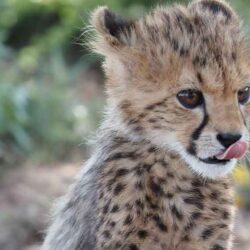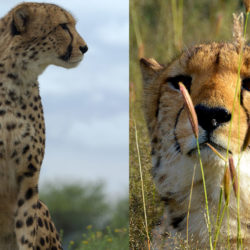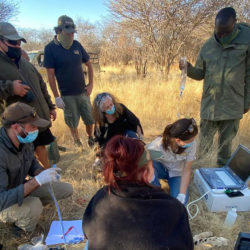Chewbaaka’s Birthday and “Peep” Comes to CCF
-
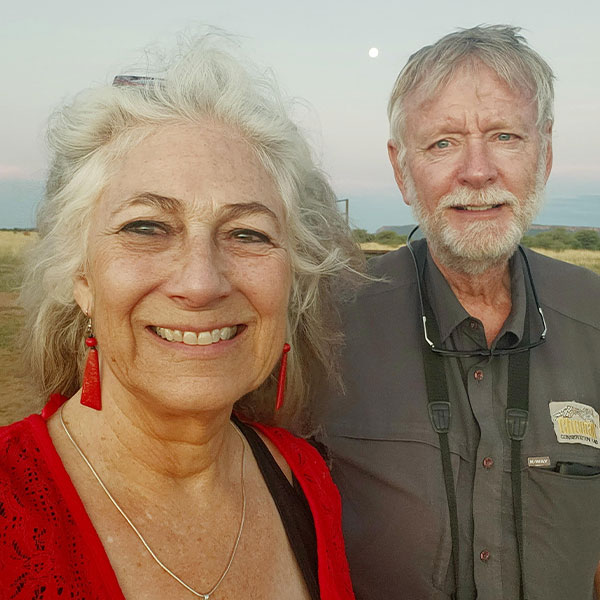
- by Dr. Laurie Marker July 1, 2005
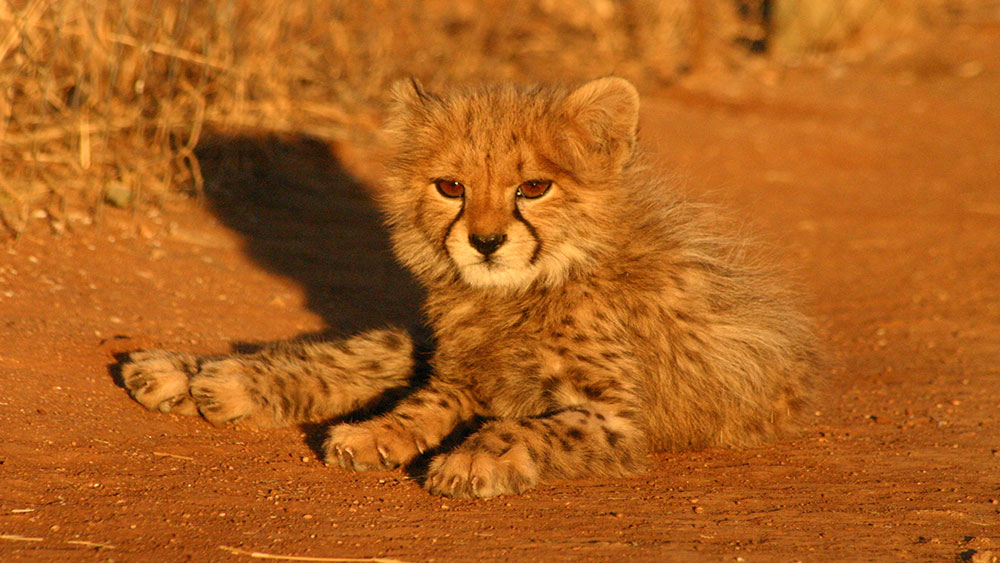
Since you heard from me last, our work at CCF has kept me intensely busy not only in Namibia but in the UK, the USA and in Kenya. On the 1st of July, we celebrated Chewbaaka’s 10th birthday and what a day this proved to be.
We were in Windhoek for the official 4th of July gathering at the US Ambassador’s house – Bruce, CCF’s General Manager; Lynda, head of CCF USA; and Susan, a CCF trustee were in attendance.
On our way home, we stopped at the veterinarian’s office to pick up a 6-week old cheetah cub, not knowing what this would mean. This type of collection is not common, but the collection of orphans certainly is.
The cub had been found with its siblings down on a farm near Omitara, the community in which I first lived upon moving to Namibia 15 years ago. A farm worker saw the cheetah family, chased after the cubs and managed to catch this one. He kicked it repeatedly and then took it to a neighbor who called CCF. The cub, suffering from trauma to the head, then spent three days in convulsions resulting in some neurological damage.
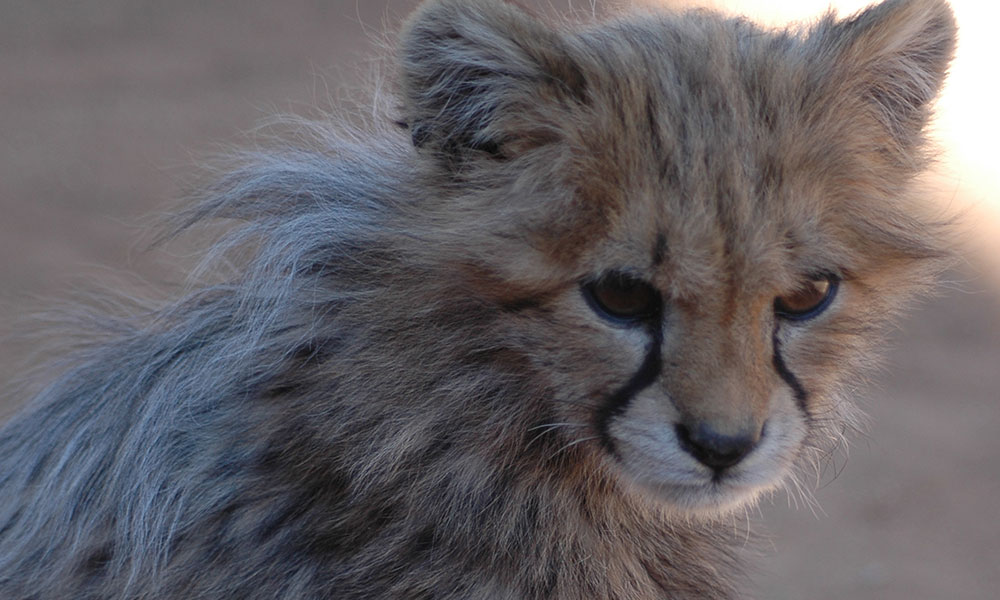
We were not aware of all of this prior to “pick-up” but after a short assessment, promptly requested diagnosis and treatment from our own veterinarian, Dr. Arthur Bagot-Smith. The cub, under careful observation and full-time monitoring by CCF staff and volunteers, has been improving daily and now looks to be on the road to health and growth. “Peep”, as she is currently being called, is still waiting for her official name. So, all names will be looked taken under consideration. Certainly, Chewbaaka’s birthday will not be forgotten.
Our other most recent orphans arrived two months ago after a farmer called, having shot the mother, one of the cubs, and two other adult cheetahs. The three remaining cubs were collected, have completed the quarantine process, and are now being integrated into our cub area where we have three others of a similar age. Cheetah cubs learn the important hunting skills at around the age of 18 to 22 months from their mother, so unfortunately these young ones can never be released.
Although our mission is to save the cheetahs in the wild, we also must provide care for these orphan cheetahs. We have 32 cheetahs in captivity right now and they have large natural enclosures in which to roam. It would be best if we could place these animals in zoos worldwide, but it is the Namibian government’s policy not to export them out of the country. Therefore, CCF is providing a good home for these cheetahs and they are part of our ongoing research, conservation and education programmes. A large portion of CCF’s budget is spent on feeding, treating, and caring for these captive cheetahs and consequently there is less funding available to devote to our wild cheetah projects. We encourage any and all of our CCF supporters and friends to help sponsor one of our orphan cheetahs.
Ideally, we hope that farmers will cease killing the mother cheetahs so that we don’t have such an issue with housing orphans and caring for them throughout their lives. This is why teaching them about ways to live with predators is so important and is the impetus behind CCF’s training workshops. We are working tirelessly with communities such as Omitara to help prevent situations like those described above in the future. We would prefer not to have to take in these cheetahs that cannot be released back into the wild, even if they recover fully from whatever injuries they may have.
We work with communal farm workers and conservancies throughout Namibia to show them how to achieve success in their farming operations without harming cheetahs through our Integrated Livestock, Wildlife, and Predator programs
Farmers are housed at CCF for a week’s intensive training in livestock and wildlife management, land use resource management, predator identification through spoor counts, and conflict resolution using non-lethal methods such as livestock guarding dogs.
Our training programs and other educational initiatives have been successful many Namibian farmers have ceased their practice of killing wild cheetahs. In February, over 80 people went through two 1-week courses and we have just completed three additional courses with over 100 participants. The feed back has been very positive and we are so excited to be reaching so many who we hope will spread the word and teach other what they have learned.
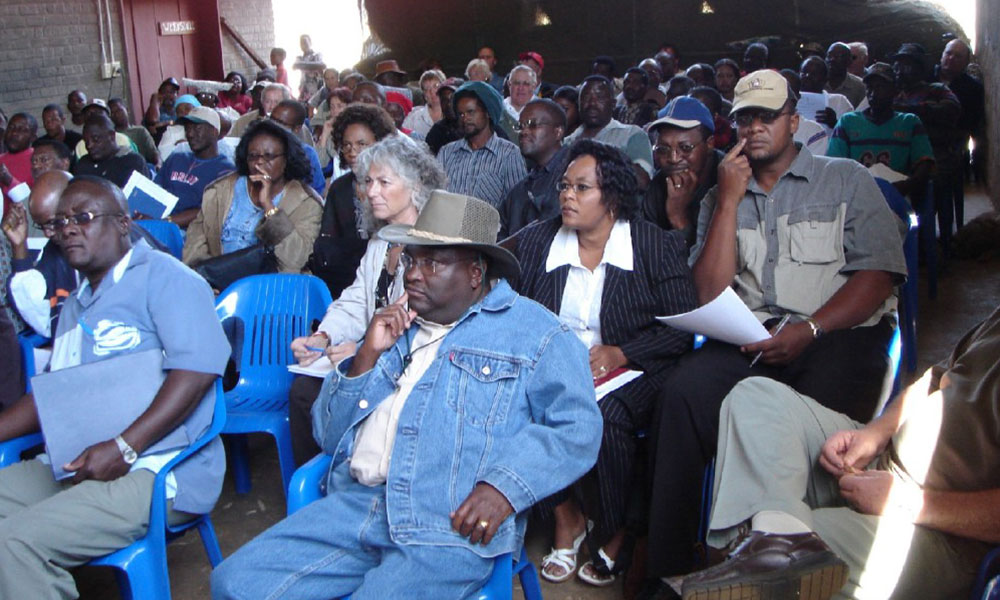
Related Reading
-
May 8, 2025
Help T-Swift to Begin Again -
April 5, 2022
Eulogies for Ron and Khayjay -
November 5, 2021
Field Scans and Clinic Exams with SoundVet

